Sacred82
Self-Ejected

Welcome back, dear reader. Even though I tend to make light of the game’s epic overtones, I’d like to use this update to talk a bit about the artistic side of Dungeon Siege II. There’s much there to like, actually.
Dungeon Siege II: part 6, wherein we touch upon the artistic merits of the game, and update our journal.
When DSII was released, it received widespread criticism for its visuals. In hindsight, this doesn’t seem entirely fair, as the game has aged relatively well. And not just in the graphics department, as we’ll see.
Graphics
The first thing players will notice are the richly illustrated cinematics the game makes use of; not just for the intro, but all along the main quest, actually. These are not only pretty to look at, but also atmospherically narrated.
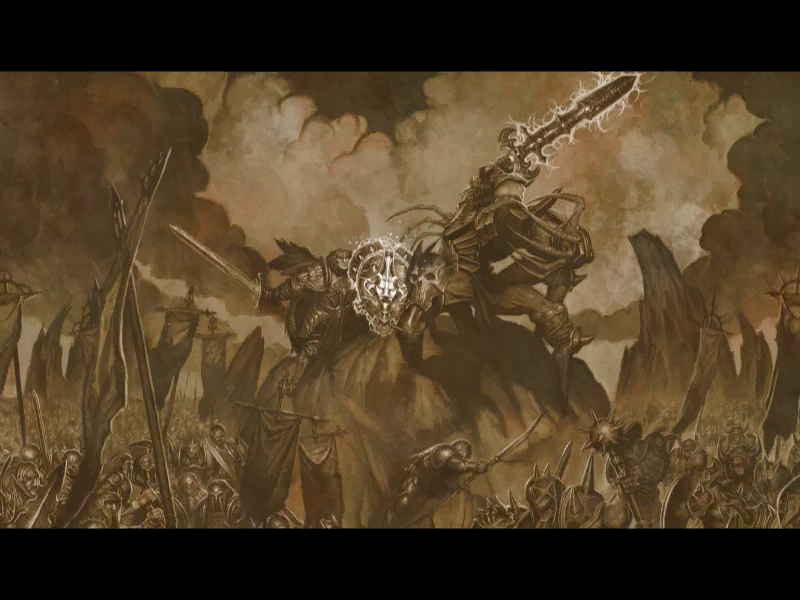
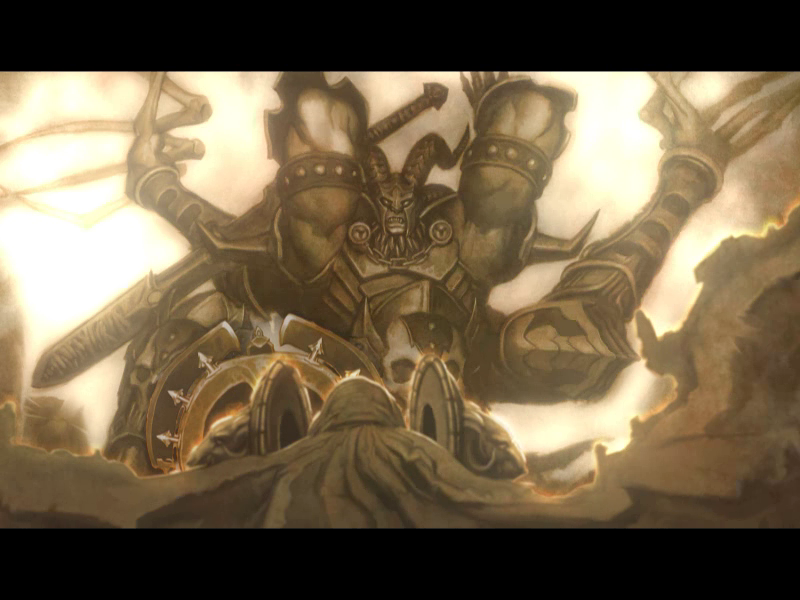
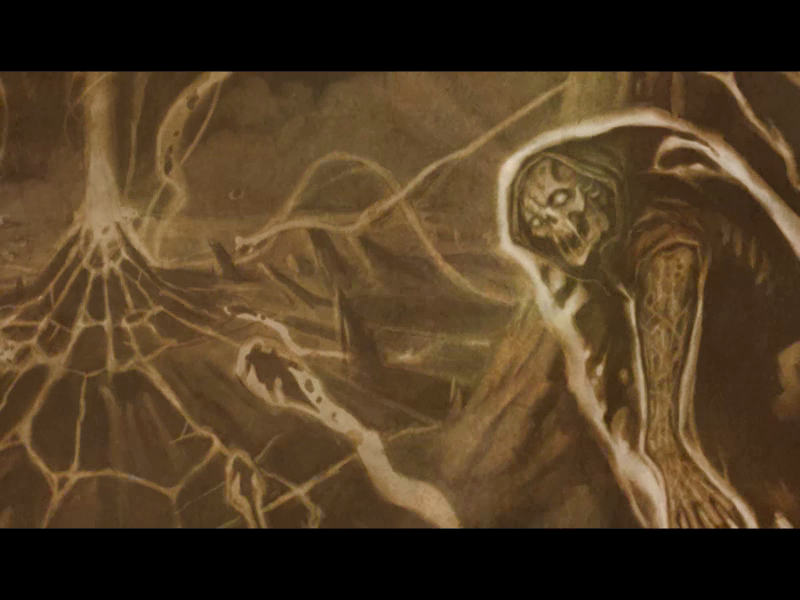
Illustrations set the tone for the game’s main quest. There is a slight dissonance here as the illustrations portray a more grimdark world than the game actually presents; it almost seems as if there were two versions of the creative vision for this game, one traditional, light-hearted fantasy in the vein of the first DS, and one with a focus on the ravages of war and necromancy.
The game itself is well animated, although the combat animations are lacking impact (this is a criticism I come across regularly in Anglophone reviews, so I thought I’d let inquiring minds know). But the richly detailed environments easily make up for that, and you’ll find yourself gazing at the complete scenery even in combat, instead of just focusing on your characters and damage numbers. Personally, I even play without HP and mana bars on the main screen, as I feel that they intrude upon the graphical style. Quite a feat for an ARPG.
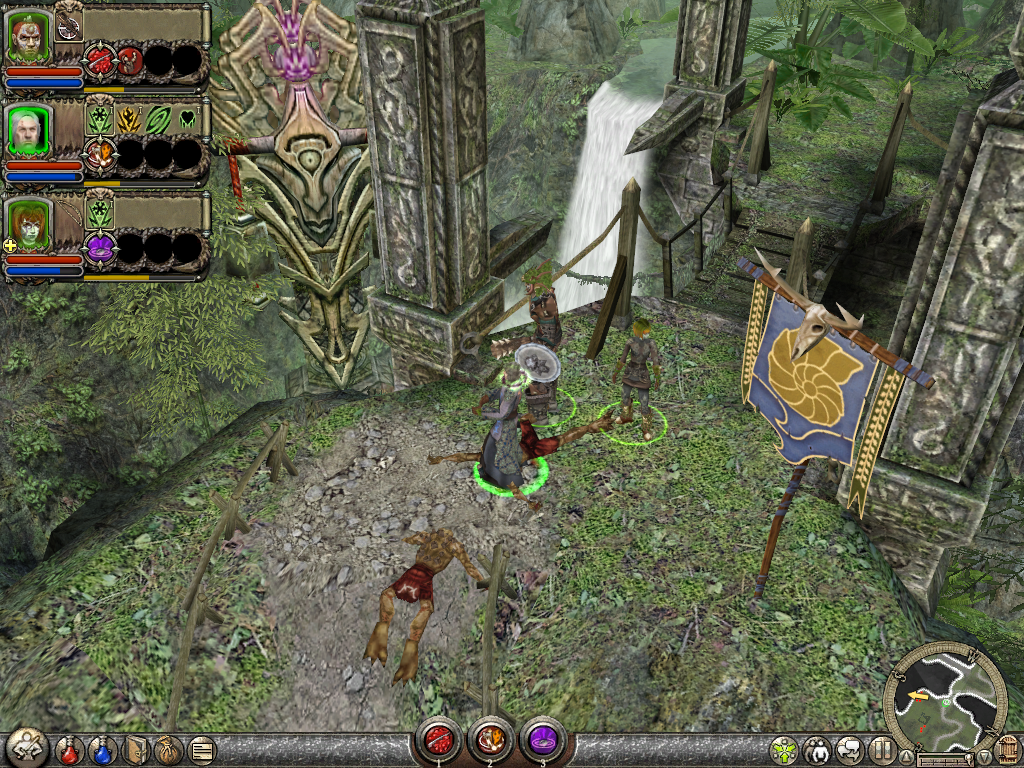
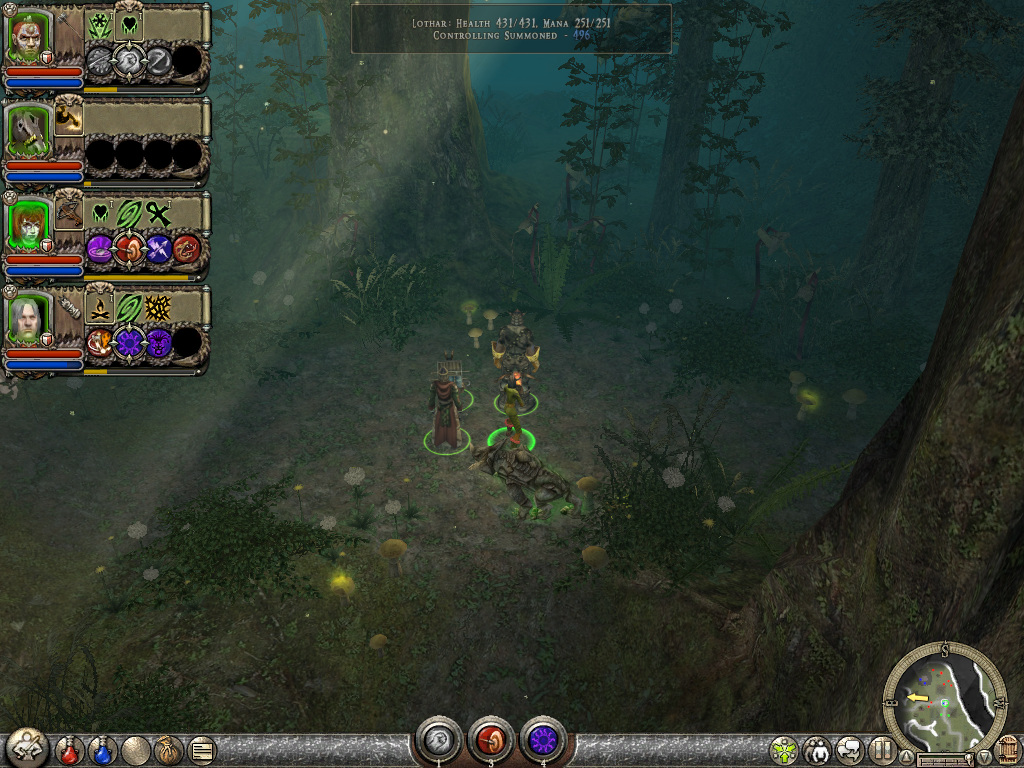
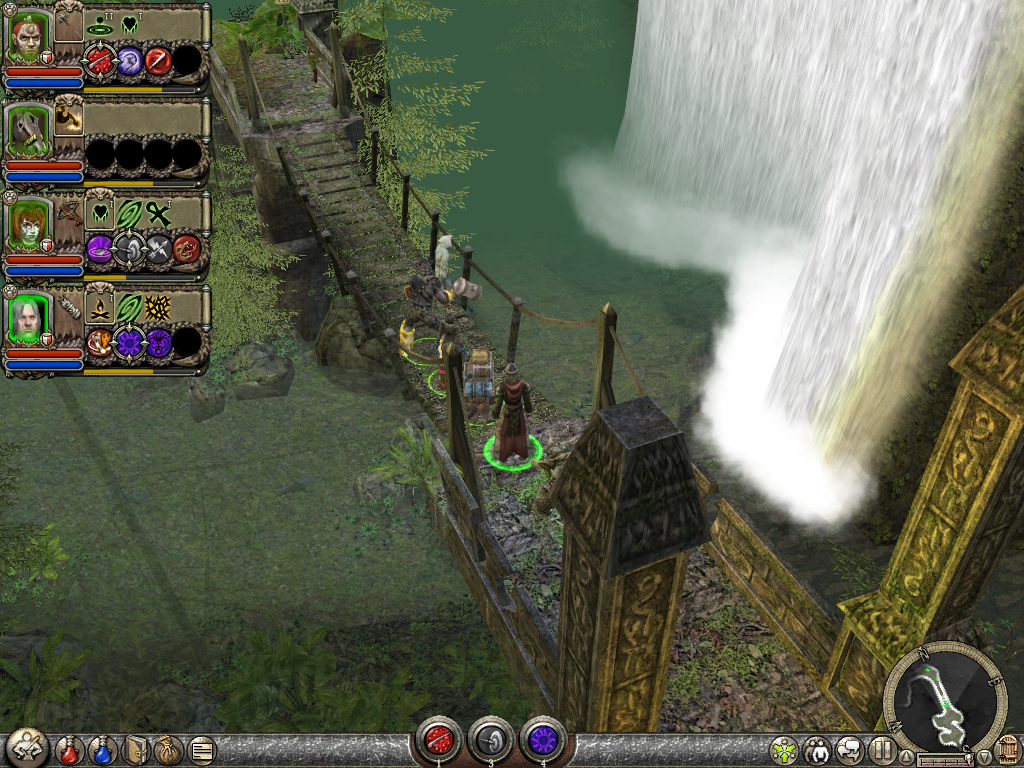
Impressions from Greilyn Isle and Vai‘lutra Forest. Note the animated fish in the water.
Writing
As mentioned above, the writing in DSII is nothing if not atmospheric. The world is Tolkienesque in nature, and the writing reflects it (Elves in the game even use words from Tolkien’s Elven languages, such as "mellonamin"). More modern wording tends to be used in dialogues, but one can tell the difference between talking to a Human guard or an Elven elder. Lore bits, as found in books scattered across the gameworld, tend to use more antiquated phrasing. Speaking of lore, it is very extensive, but almost completely optional. The hand-placed books and detailed design of out-of-the-way, optional locations, emulate an Ultima-ish feel and worldbuilding, with the latter being of exceptional quality for an ARPG.
Party banter constitutes the low point of the writing. It’s downright terrible – NWN2 OC levels terrible. I don’t know which intern was responsible for this, but my guess is it wasn’t nealiios.
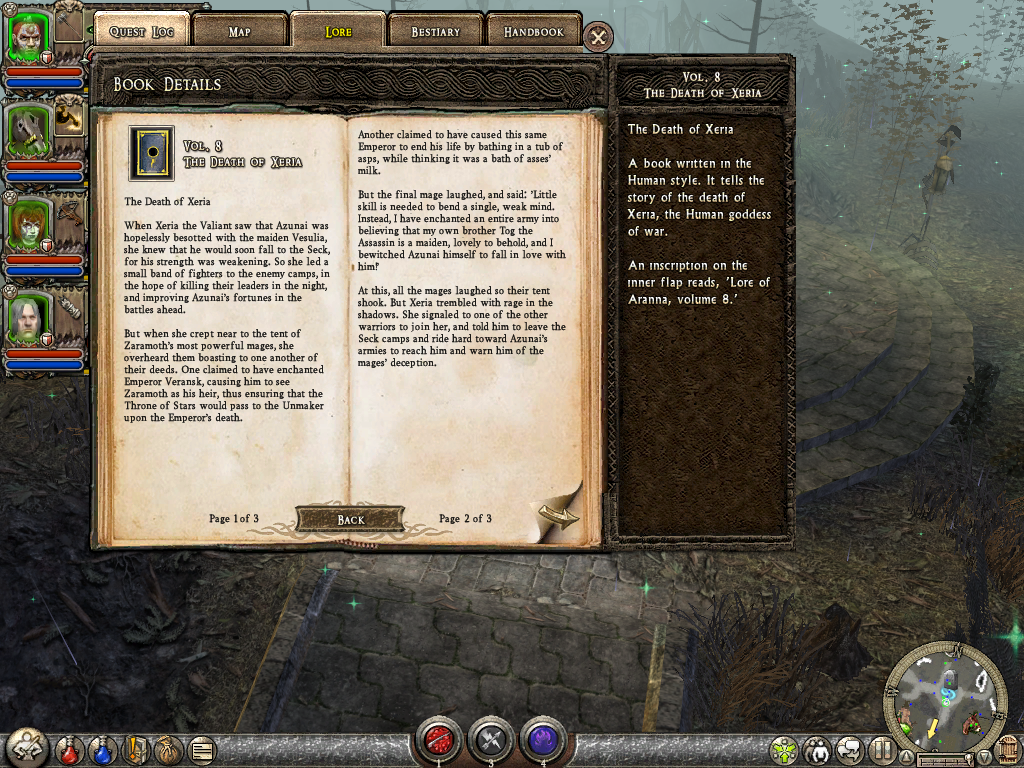
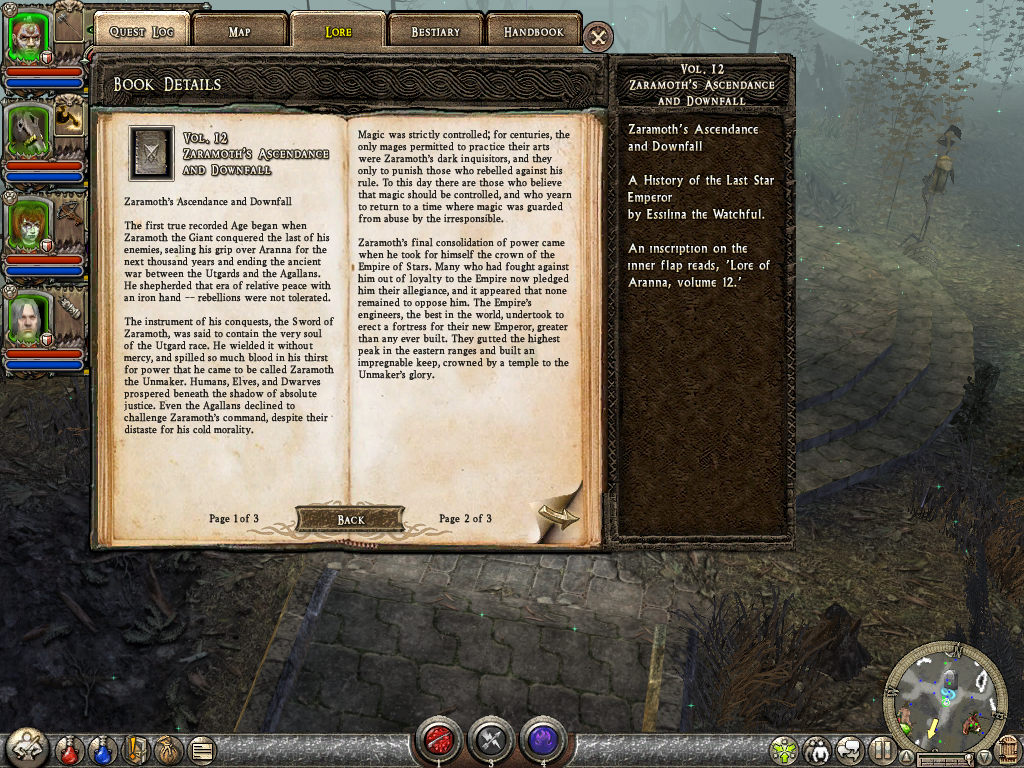
Samples of the game’s lore books. Lore is never really forced on you in the game, thanks to the usual ARPG mechanics.
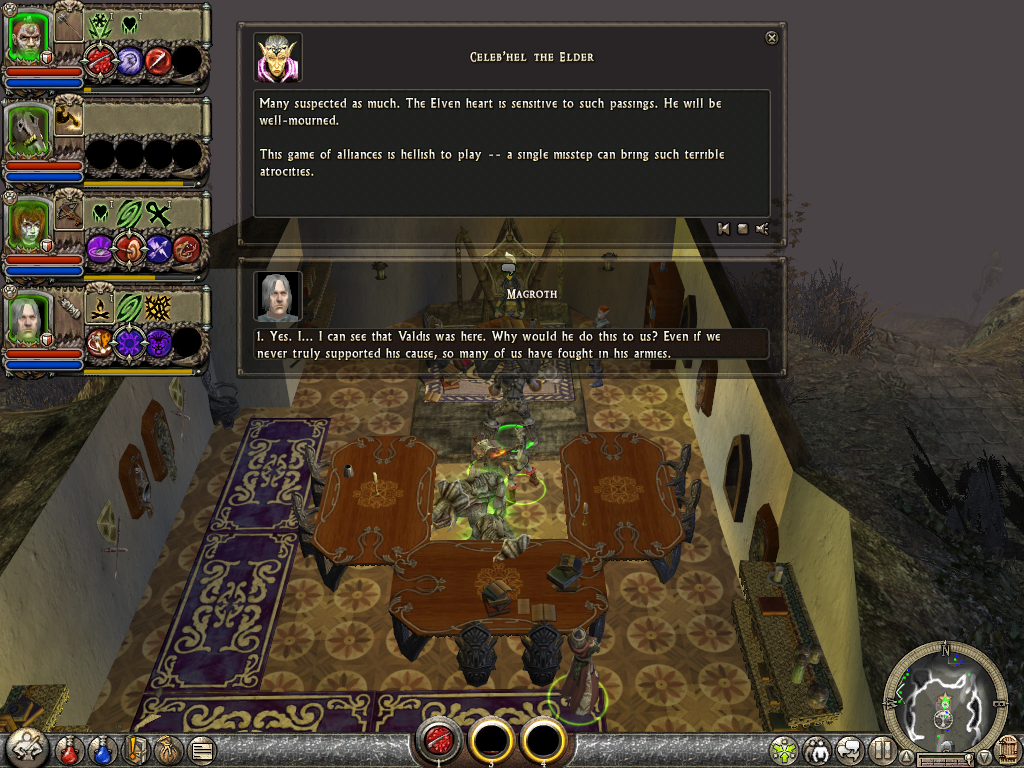
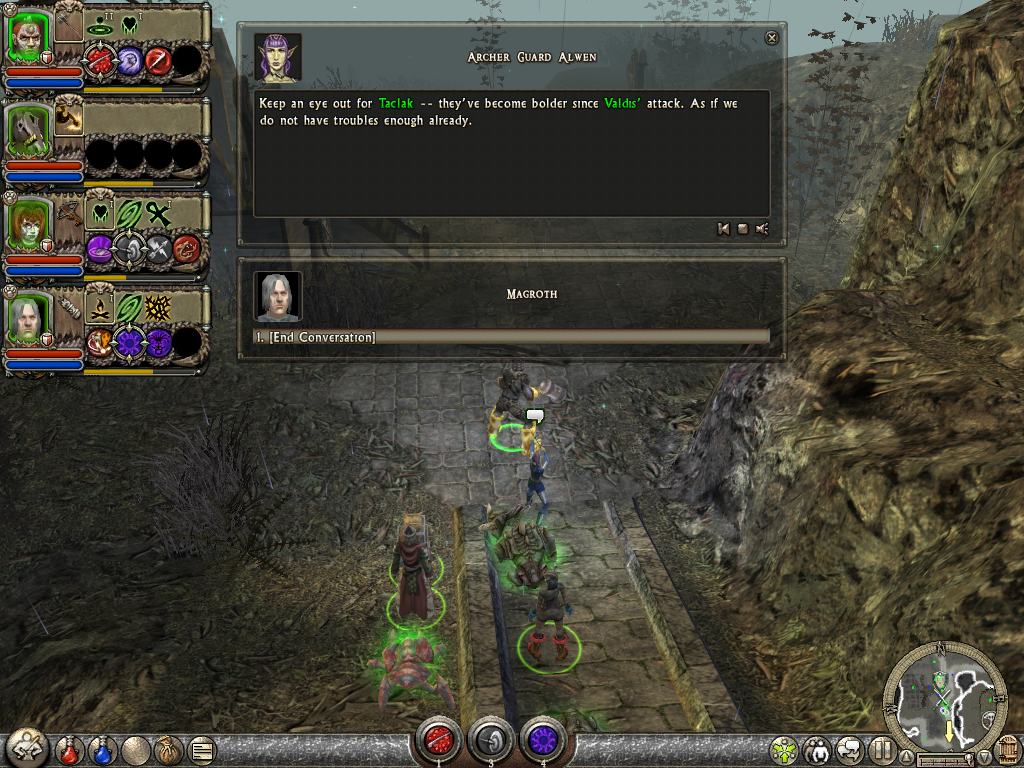
Even guards have their own portraits, VA and flavour text, even if they’re not always unique.
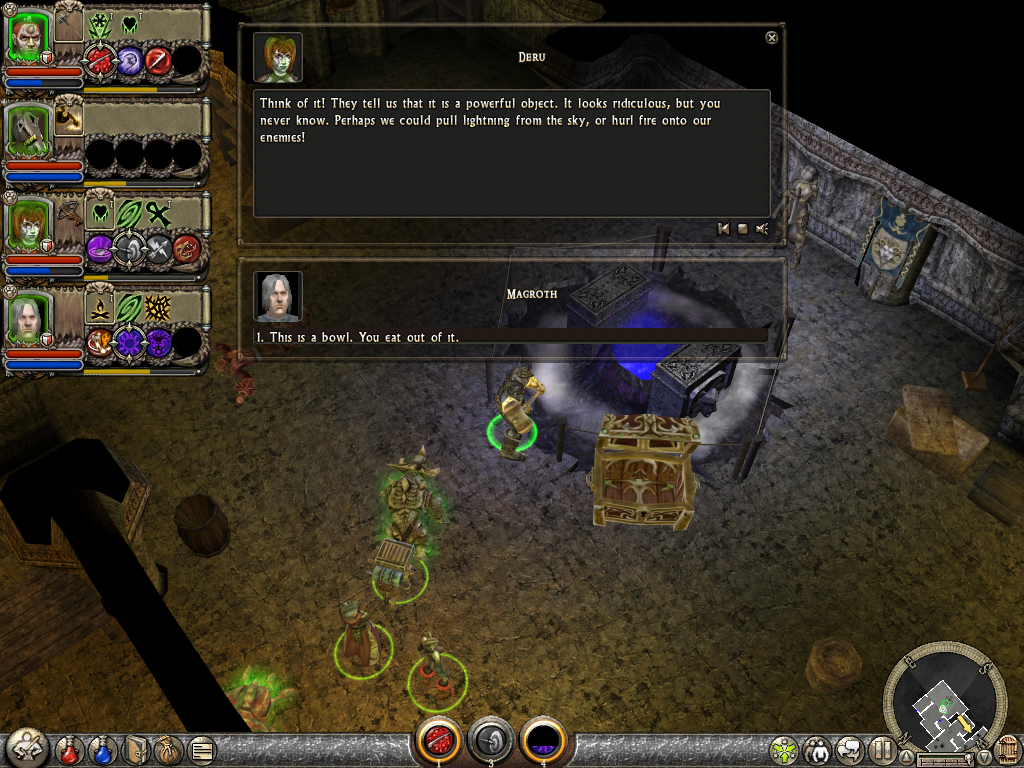
Party banter is downright awful.
Music
Dungeon Siege II features some excellent music by Jeremy Soule.
When people talk about „Jeremy Soule's finest work“, they usually mean some epic as shit stuff that they can listen to outside of a game. My stance is that this isn't the case with Dungeon Siege II – and that's a good thing.
DSII's music is, at the same time, subdued and stirring. Listen to the Aman'lu theme for example. Or, for the sake of comparison, to the theme of the Dryad city Eirulan next to Icewind Dale's Kuldahar theme. Both are frontier towns, even though Kuldahar's location is a little more desolate. Still, Kuldahar's melancholy theme always rubbed me the wrong way, for what is the main hub in a (mostly) ARPG.
And then there's Morrowind's introductory theme. You're a prisoner getting hauled off a ship clad in rags, but there's music playing as if you'd just claimed the Imperial throne. Jeremy screwed up on that one. Bigly. Total loser. Sad!
Such out of tune pieces are absent from DSII's soundtrack, as far as I can tell by now. The music expertly sets the tone for a fun, yet epic adventure.
On a final note, this piece was so good apparently that they simply recycled it for the overland map of the PSP spinoff Throne of Agony, an unbalanced but fun romp in its own right.
Party update
Our party setup has changed a bit, as I wasn’t happy with its performance. The party concept is still the same though, with a focus on summoning.
1. Lothar the Beastmaster
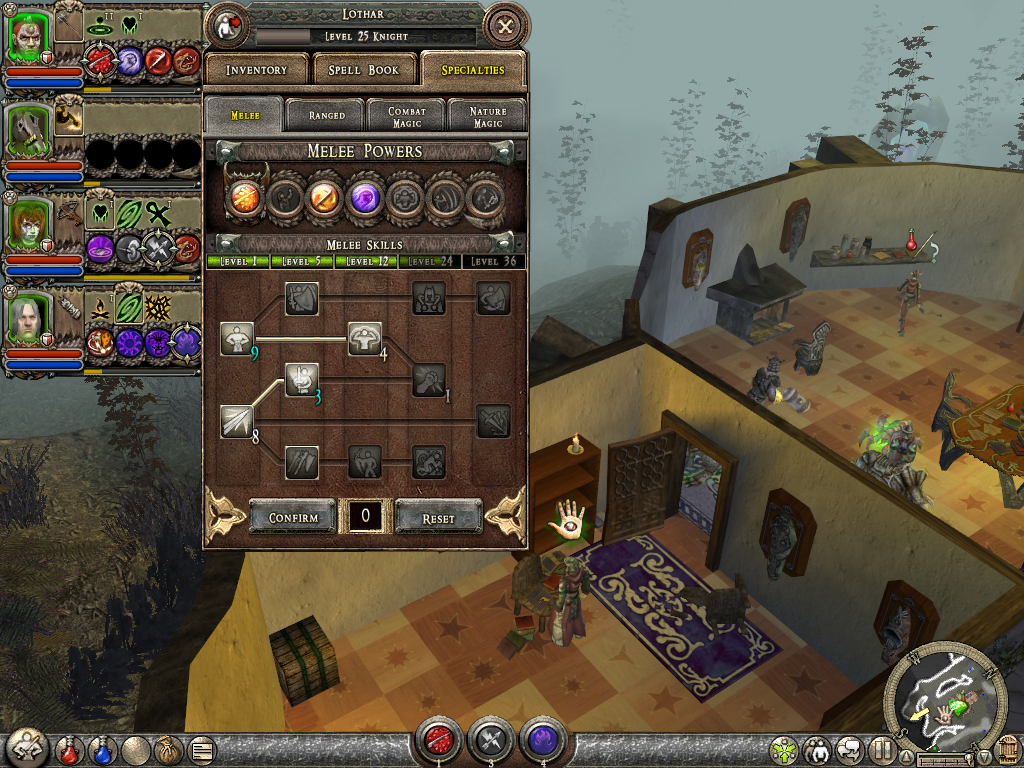
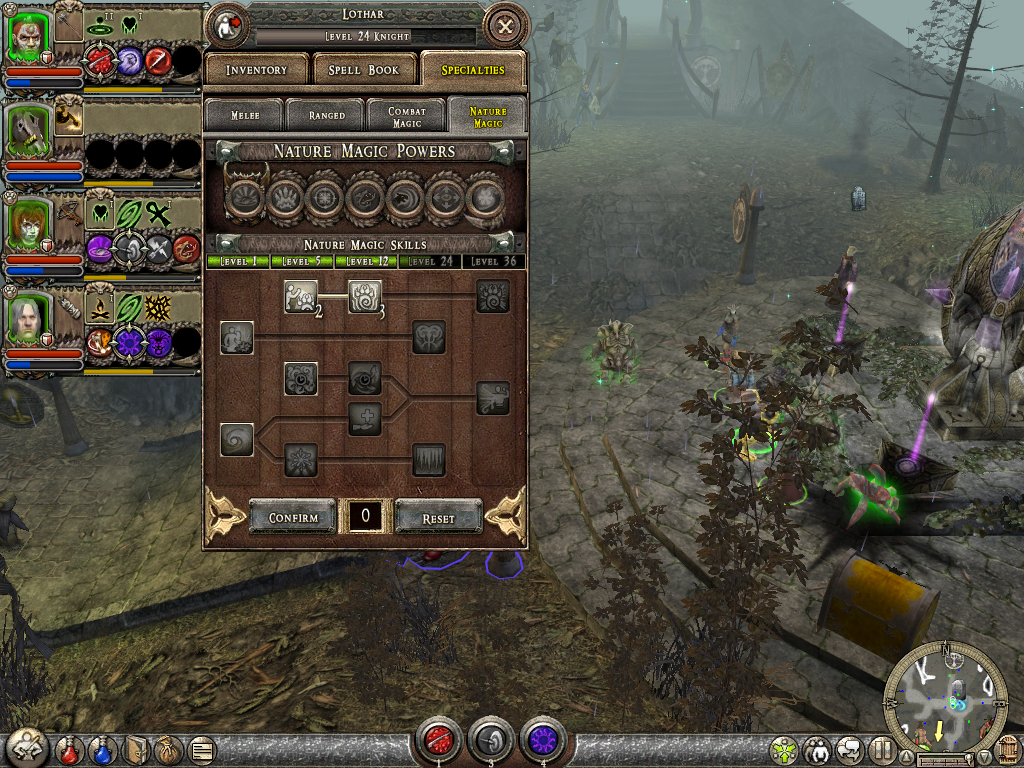
Lothar is now a two-handed fighter, but he also has some summoning skills. Every now and then we set him to healer mode to raise his nature magic, but he’s rather bad at it.
2. Mr Smith the Mule
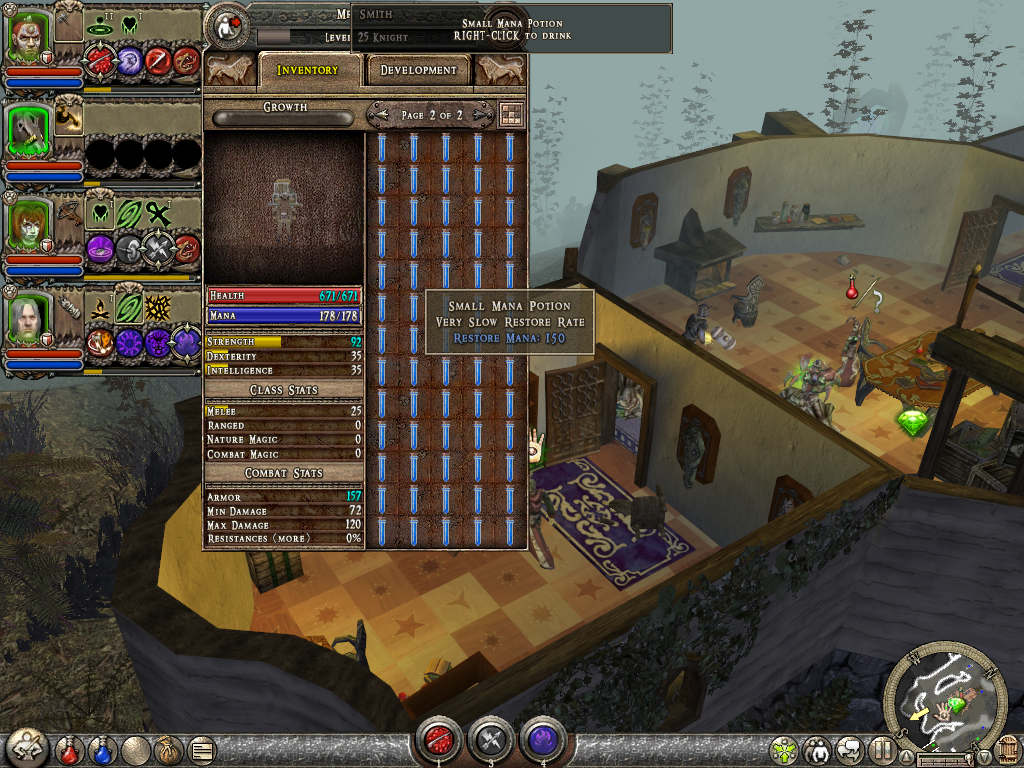
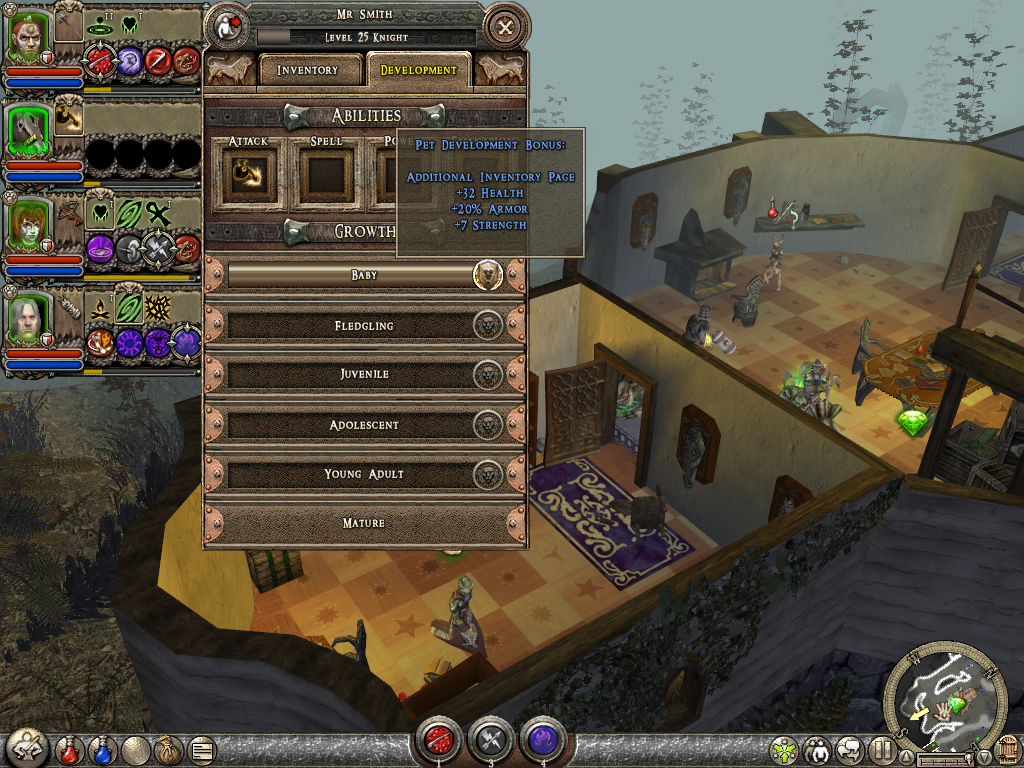
As you can see, our Mule has outgrown the baby stadium, and is now in its fledgling phase. He got a few boosts and a new inventory page. We mostly use it to carry more inexpensive potions; a potion that heals twice the HP costs 5 times as much, and it only serves to save inventory space as potions don’t restore HP in one go, but rather simply boost your HP regeneration.
3. Deru the Apothecary
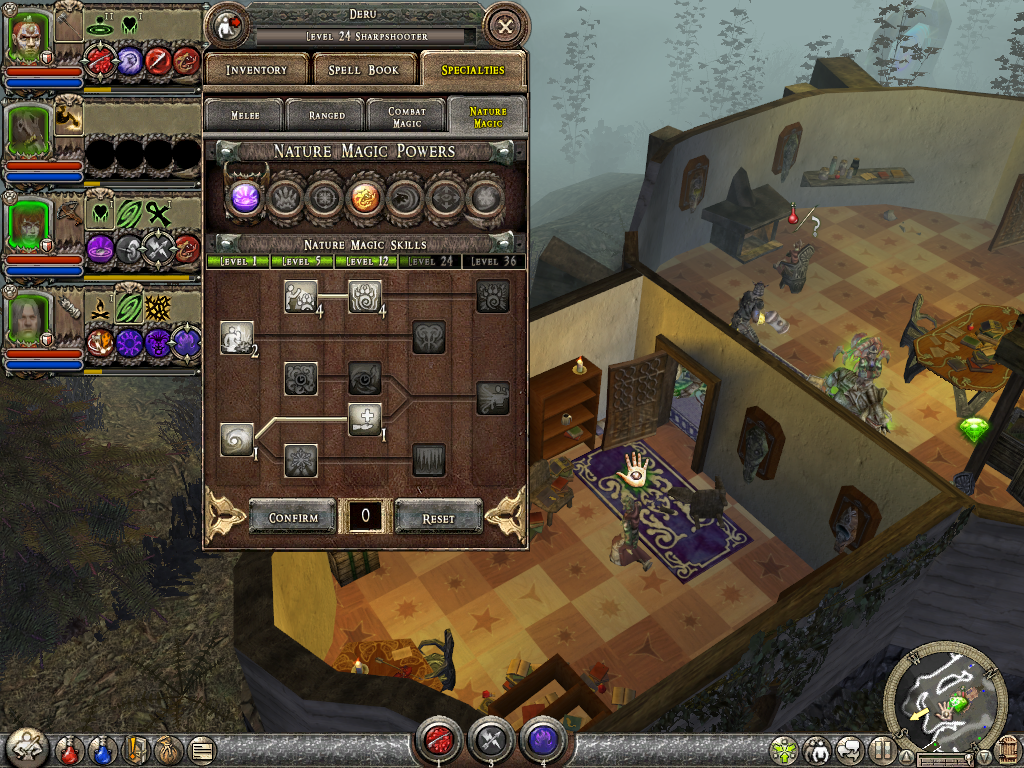
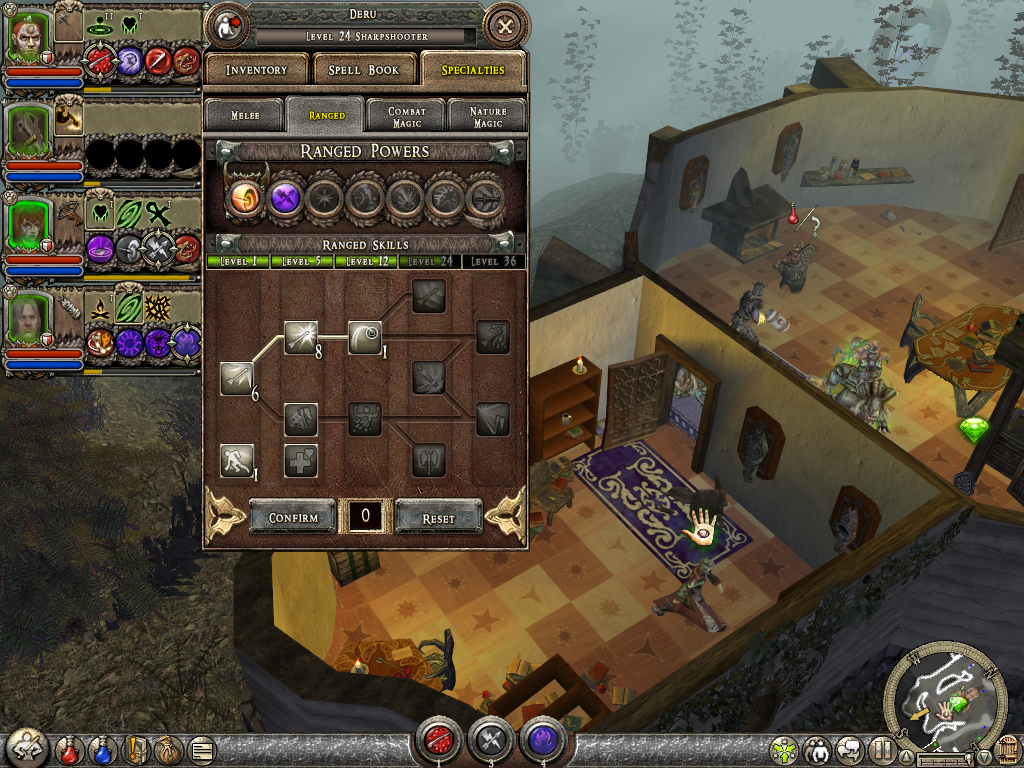
Deru is a new addition to our party. As you can see, her skills are a bit all over the place. She is a skilled summoner, and also has 1 point in both healing skills. She uses heavy crossbows as a sidearm, for high per-hit damage. For this purpose she also has 6 points in the Critical Shot skill, and 8 in Biting Arrows, which boosts her damage.
4. Magroth the Pyromaniac
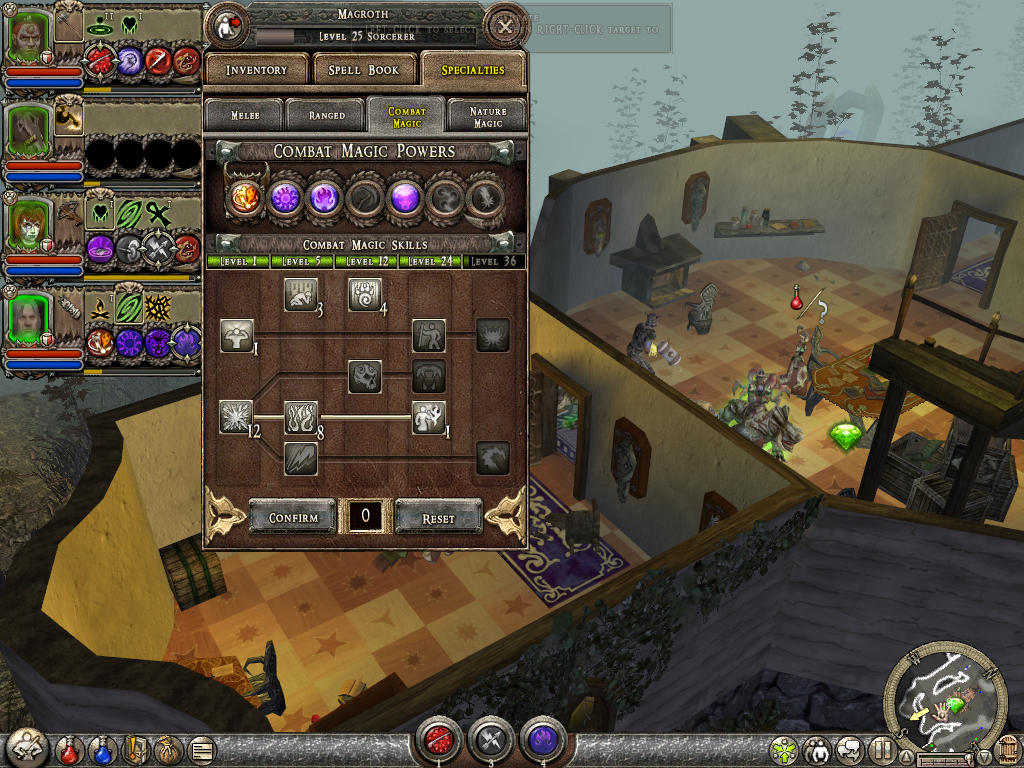
Our hero is a now a pure combat mage. He has 12 points in Devastation and 8 points in Searing Flames, which increase his fire damage output. However, glass cannon mages prove to be a real PITA in this game. They often initiate combat and attract the attention of enemies, only to get clobbered a few seconds into the fighting. I think I’ll never build a pure mage again. We will build up his summoning skills further when he levels up, to spread the damage output between him and his summon. Maybe that’ll improve his survivability. He also has 3 points in Devastation to curse his enemies with a curse that makes them weak to fire and lowers their melee damage.
That’s all for today, folks. Enjoy your Easter Weekend and join me again next week, when we venture forth into the destruction that has ravaged our hometown. Goodbye!
Dungeon Siege II: part 6, wherein we touch upon the artistic merits of the game, and update our journal.
When DSII was released, it received widespread criticism for its visuals. In hindsight, this doesn’t seem entirely fair, as the game has aged relatively well. And not just in the graphics department, as we’ll see.
Graphics
The first thing players will notice are the richly illustrated cinematics the game makes use of; not just for the intro, but all along the main quest, actually. These are not only pretty to look at, but also atmospherically narrated.



Illustrations set the tone for the game’s main quest. There is a slight dissonance here as the illustrations portray a more grimdark world than the game actually presents; it almost seems as if there were two versions of the creative vision for this game, one traditional, light-hearted fantasy in the vein of the first DS, and one with a focus on the ravages of war and necromancy.
The game itself is well animated, although the combat animations are lacking impact (this is a criticism I come across regularly in Anglophone reviews, so I thought I’d let inquiring minds know). But the richly detailed environments easily make up for that, and you’ll find yourself gazing at the complete scenery even in combat, instead of just focusing on your characters and damage numbers. Personally, I even play without HP and mana bars on the main screen, as I feel that they intrude upon the graphical style. Quite a feat for an ARPG.



Impressions from Greilyn Isle and Vai‘lutra Forest. Note the animated fish in the water.
Writing
As mentioned above, the writing in DSII is nothing if not atmospheric. The world is Tolkienesque in nature, and the writing reflects it (Elves in the game even use words from Tolkien’s Elven languages, such as "mellonamin"). More modern wording tends to be used in dialogues, but one can tell the difference between talking to a Human guard or an Elven elder. Lore bits, as found in books scattered across the gameworld, tend to use more antiquated phrasing. Speaking of lore, it is very extensive, but almost completely optional. The hand-placed books and detailed design of out-of-the-way, optional locations, emulate an Ultima-ish feel and worldbuilding, with the latter being of exceptional quality for an ARPG.
Party banter constitutes the low point of the writing. It’s downright terrible – NWN2 OC levels terrible. I don’t know which intern was responsible for this, but my guess is it wasn’t nealiios.


Samples of the game’s lore books. Lore is never really forced on you in the game, thanks to the usual ARPG mechanics.


Even guards have their own portraits, VA and flavour text, even if they’re not always unique.

Party banter is downright awful.
Music
Dungeon Siege II features some excellent music by Jeremy Soule.
When people talk about „Jeremy Soule's finest work“, they usually mean some epic as shit stuff that they can listen to outside of a game. My stance is that this isn't the case with Dungeon Siege II – and that's a good thing.
DSII's music is, at the same time, subdued and stirring. Listen to the Aman'lu theme for example. Or, for the sake of comparison, to the theme of the Dryad city Eirulan next to Icewind Dale's Kuldahar theme. Both are frontier towns, even though Kuldahar's location is a little more desolate. Still, Kuldahar's melancholy theme always rubbed me the wrong way, for what is the main hub in a (mostly) ARPG.
And then there's Morrowind's introductory theme. You're a prisoner getting hauled off a ship clad in rags, but there's music playing as if you'd just claimed the Imperial throne. Jeremy screwed up on that one. Bigly. Total loser. Sad!
Such out of tune pieces are absent from DSII's soundtrack, as far as I can tell by now. The music expertly sets the tone for a fun, yet epic adventure.
On a final note, this piece was so good apparently that they simply recycled it for the overland map of the PSP spinoff Throne of Agony, an unbalanced but fun romp in its own right.
Party update
Our party setup has changed a bit, as I wasn’t happy with its performance. The party concept is still the same though, with a focus on summoning.
1. Lothar the Beastmaster


Lothar is now a two-handed fighter, but he also has some summoning skills. Every now and then we set him to healer mode to raise his nature magic, but he’s rather bad at it.
2. Mr Smith the Mule


As you can see, our Mule has outgrown the baby stadium, and is now in its fledgling phase. He got a few boosts and a new inventory page. We mostly use it to carry more inexpensive potions; a potion that heals twice the HP costs 5 times as much, and it only serves to save inventory space as potions don’t restore HP in one go, but rather simply boost your HP regeneration.
3. Deru the Apothecary


Deru is a new addition to our party. As you can see, her skills are a bit all over the place. She is a skilled summoner, and also has 1 point in both healing skills. She uses heavy crossbows as a sidearm, for high per-hit damage. For this purpose she also has 6 points in the Critical Shot skill, and 8 in Biting Arrows, which boosts her damage.
4. Magroth the Pyromaniac

Our hero is a now a pure combat mage. He has 12 points in Devastation and 8 points in Searing Flames, which increase his fire damage output. However, glass cannon mages prove to be a real PITA in this game. They often initiate combat and attract the attention of enemies, only to get clobbered a few seconds into the fighting. I think I’ll never build a pure mage again. We will build up his summoning skills further when he levels up, to spread the damage output between him and his summon. Maybe that’ll improve his survivability. He also has 3 points in Devastation to curse his enemies with a curse that makes them weak to fire and lowers their melee damage.
That’s all for today, folks. Enjoy your Easter Weekend and join me again next week, when we venture forth into the destruction that has ravaged our hometown. Goodbye!










